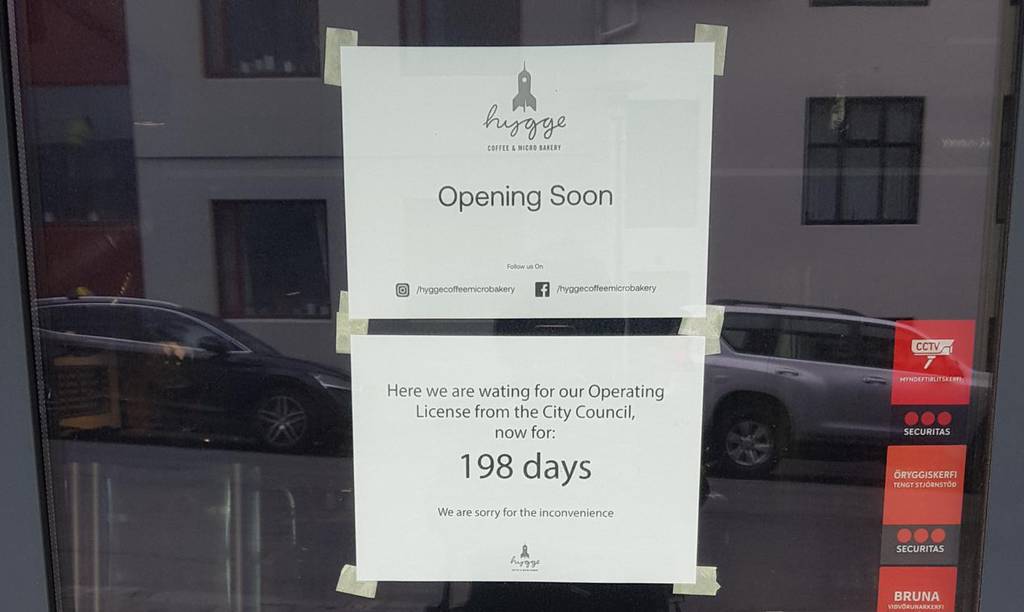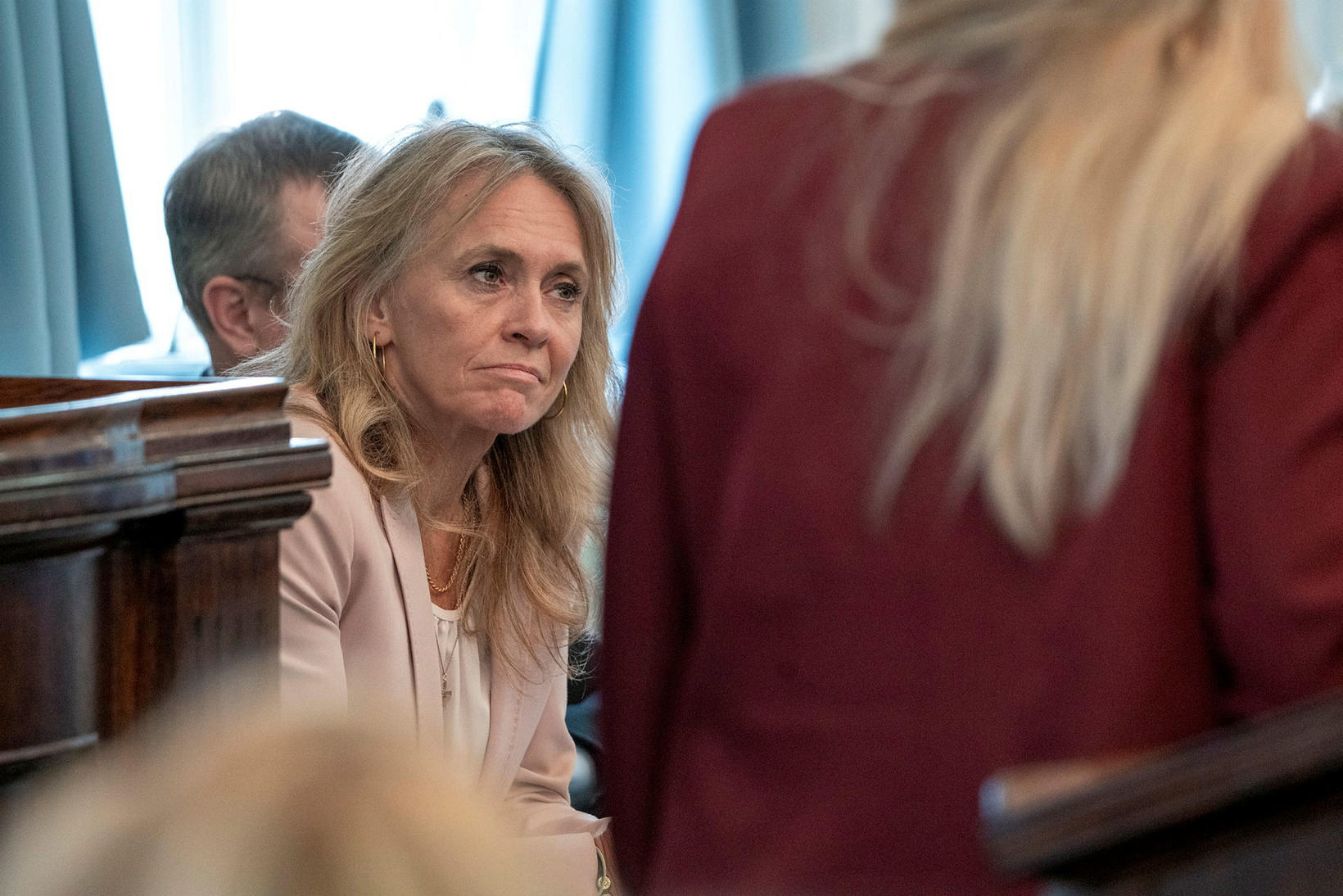For whom is it good?

The opposition MP says a new bill by the Minister of Education sheds light on the government’s apathy when it comes to young people’s education with disabilities. Trying to move the problem and hide it. The MP says that only the law is being sharpened in accordance with the opinion of the Ombudsman of Parliament.
Guðmundur Ari Sigurjónsson, MP for the Social Democratic Alliance, says a new bill on amendments to the upper secondary school law does not adopt the schools to select students based on assumptions that are not related to academic achievement, but simply to sharpen the authority of the schools to do so.
« In fact, the professional independence of the schools is being strengthened to assess how they orally conduct, » says Guðmundur Ari in a conversation with mbl.is about the new bill, which has attracted much attention after discussing its content Last night.
An obvious message to college
Sigríður Á. Andersen MP for the Central Party clearly states that it is being directed to the upper secondary school to look at considerations other than the academic achievement of oral.
« This is clearly at least approval for looking at other factors than the learning outcome, which I do not agree with. It is being approved without it being successful for anyone, » she says of the bill and continues:
« Neither for the student who is admitted to the school nor for the other students who are rejected – nor for those who need to be subject to studying with other students who have not been the prerequisites for studying at the school. »
The source entered into law
A bill to amend the upper secondary school law is now before the parliament, as previously stated, and is amended for amendments to 1 and 2. Paragraph 2 Article 32 of the Act.
She should sound like this:
« » Each secondary school is responsible for enrollment in the students in the school in accordance with the regulation according to paragraph 3 and other instructions from the Minister on enrollment.
It should be mentioned that colleges may already look at factors other than grades, in the choice of students, according to regulation on enrollment in upper secondary school students.
If the bill comes into effect, the authorization, however, is entered into law.
« AAll colleges should be responsible for a diverse student group ”
In a conversation with mbl.is about the bill, Guðmundur Ingi Kristinsson, Minister of Education and Children’s Affairs, said that he considered it unfair that colleges only looked at grades when students were taken.
Students often have other talents.
A statement in the bill states that diversity among college students has increased in recent years, MA with an increase in students with a diverse language and cultural background and students who, for disability or other reasons, need special support.
« It is important to equalize the opportunities for students in the enrollment process and that all colleges shoulder responsibility for a diverse student group. Therefore, there is reason to clarify and, as the case may be, strengthen the legal basis for enrollment in upper secondary schools. »
Necessary to sharpen the authorization
« It is not to send the message that they should conduct the admission in a certain way, but to strengthen the authority that the Ombudsman for Parliament had decided – that it was necessary for the legislator to sharpen those sources, if colleges are to be able to look at more aspects than just a study.
In addition, he mentions that colleges have in recent years look to more aspects than academic achievement when students are taken in, even though the learning outcome is still the foundation that is being considered.
« It is taking boys who have slightly lower grades so that the schools are not too homogeneous in terms of gender. But it was considered necessary to explain the source in the law, » he reiterates.
« It is important to equalize the opportunities for students in the enrollment process and that all colleges shoulder responsibility for a diverse student group. Therefore, there is reason to clarify and, as the case may be, strengthen the legal basis for enrollment in upper secondary schools, » the report says.
mbl.is/karitas
Not unreasonable to choose those who are considered to be able to save themselves best
Sigríður says that even though the schools have considered that they have been allowed to look at more points of view than educational success, when enrolling in students, there are certain recommendations inherent in the bill from the minister to the upper secondary schools.
They are on the way to increasingly looking at other than grades to increase diversity in the student group.
« But the question that arises, of course, is whether this is a natural criterion in upper secondary school, to look at factors other than the ability of a student to study at the school in question, » she says.
« Now, of course, the schools are very different and some are very specialized. In my opinion, it is not unnatural that the schools choose the students they think can save themselves best in that school. »
Can be an accomplishment person in other than learning
But what are the benefits of ignoring grades?
« Although you may have a slightly lower average grade in some literary stages, but may have been a achievement person in another that relates to the school community, whether it is social work, linguistic organizations or sports activities, they are actually authorized to look at the schools, »
But is there a risk that if we are looking at success in sports, leisure or, for example, musical instruments, it is then being hemp students who have stronger backyes than other students – that it is being stretched by that group rather than others?
« I don’t think so. These are different skills that are being considered. I trust the colleges very well to prepare their admission career professionally and from the factors that they consider important for their schooling, » says Guðmundur Ari and continues:
« » There are also students who have disabilities or analyzes if colleges want to participate in supporting a variety of student groups. Some colleges have received certain elite stamp in the student group. «
Corporate remedies and apathy of government
Sigríður is different and doubts the advantages that the focus on increasing diversity may entail. In fact, she says it is quite unclear what advantages it has to look not only at grades.
« I think with this legislative change – regardless of whether the schools believe that they have been allowed to do this so far, people are losing sight of the goal of the colleges, » she says.
She also states the Minister’s recommendation to the upper secondary schools, which are stated in the report in the bill, to shoulder responsibility for more students with disabilities and to overlook academic achievement, shed light on the « crying of government resources and apathy » towards such students.
« This is done because the government – and parents are passing this – because the government has not made the effort to ensure such students some acceptable resources in the school system, » she says.
« Of course, that’s what needs to be done – but don’t move the problem, try to distribute it somehow and hide it in mainstream schools. There is no pay done with it and especially the students who are included in such a school. »
The benefits of the legislative change need to be informed
Now the goal is to increase diversity in the upper secondary group. Are there any benefits that come with it in your opinion?
« It is nowhere stated in the report for whom it is good to increase the diversity of a student group in school. It needs to be defined and it has to be informed for who it should be good, » says Sigríður.
« Is it good for other students at the school to have students who may not be in line with the curriculum? Is it good for the student who is struggling all his schooling in the school in question? » She asks.
« As examples are, for example, where people have been at the Commercial School, for example, taking boys that have shown less academic achievement than girls who are rejected at the school. There are examples of falling out of school. »
Made at the expense of another student
She also says it is often forgotten that when some student is given priority on the basis of a different scale than the one that should be the basis of admission to a school, which is a academic achievement, it is done at the expense of another student.
« It is distributing limited quality and you have to answer how it is fair to distribute this quality with regard to the goals of the schools. »
She says people need to face the role of college, which is to educate students but not raise them. Then she reiterates that the goal of upper secondary schools is, like universities, to graduate good students, not just graduating students.
« These are the views that need to be kept in mind, » says Sigríður.
« Whether it is positive to prevent a student who has done everything in his power and fully meets the requirements of the school for education, not to join the school because someone else who does not meet the educational requirements of that school will have space. »








